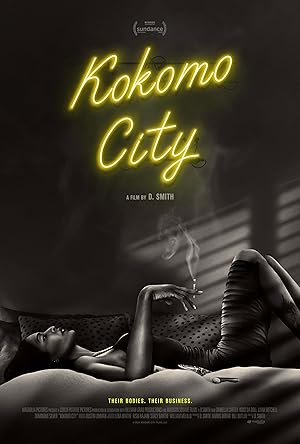Kokomo City (2023)

- HD 1080
- Runtime: 73m.
- Status: Released
2
- Languages: en
- Country: United States of America
- Director: D. Smith
- Stars: Daniella Carter, Dominique Silver, Koko Da Doll, Liyah Mitchell, Bancroft Fitzgerald
- keywords: new york city, lgbt, sex worker, atlanta, georgia, african american
- Production_studio: Couch Potatoe Pictures, Madison Square Films, Hillman Grad Productions
- Slogan: Their bodies. Their business.
- providers: fuboTV, Paramount+ with Showtime, Paramount Plus Apple TV Channel, Paramount+ Amazon Channel, Paramount+ Roku Premium Channel
Four Black transgender sex workers in Atlanta and New York City break down the walls of their profession.